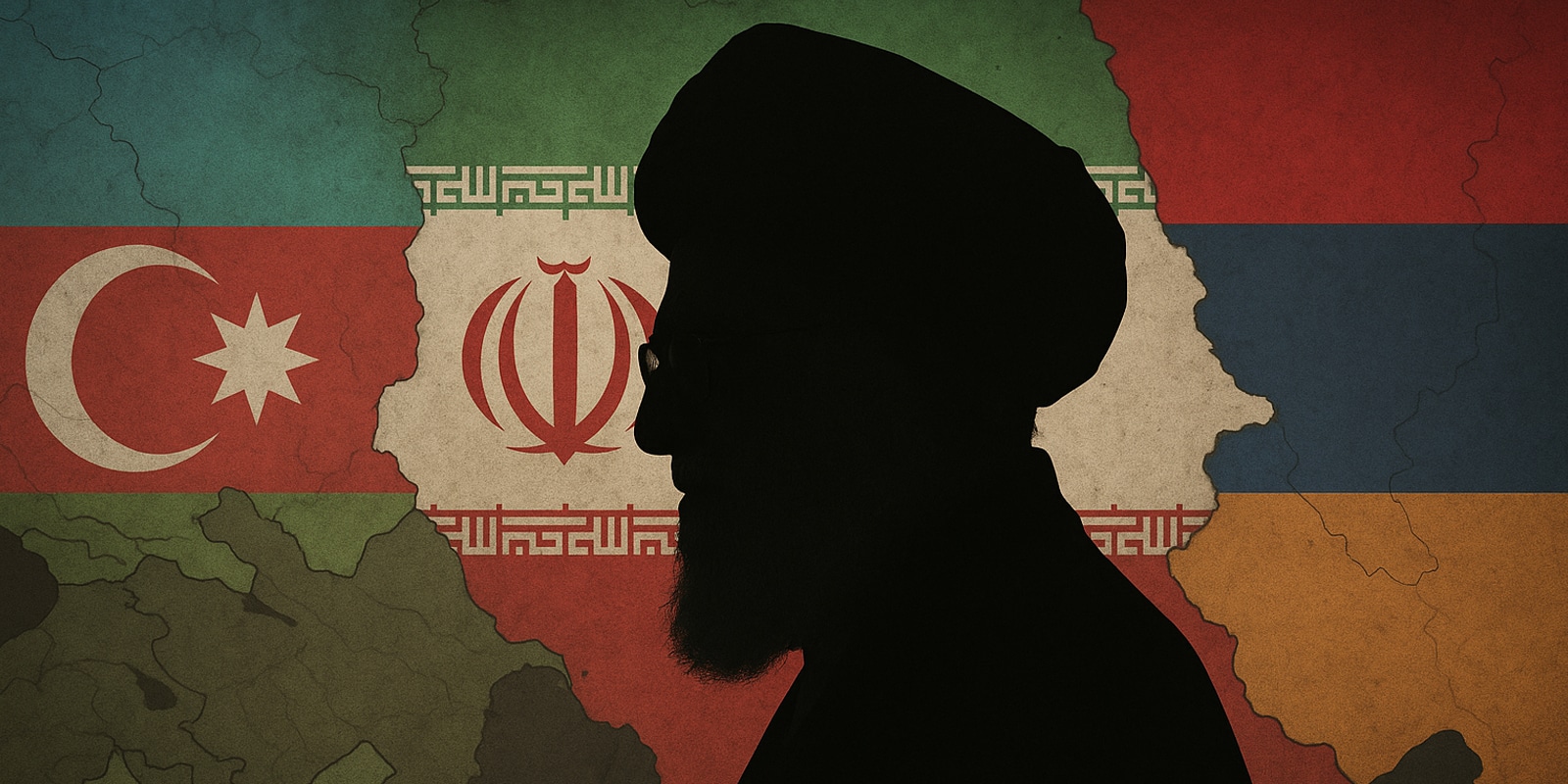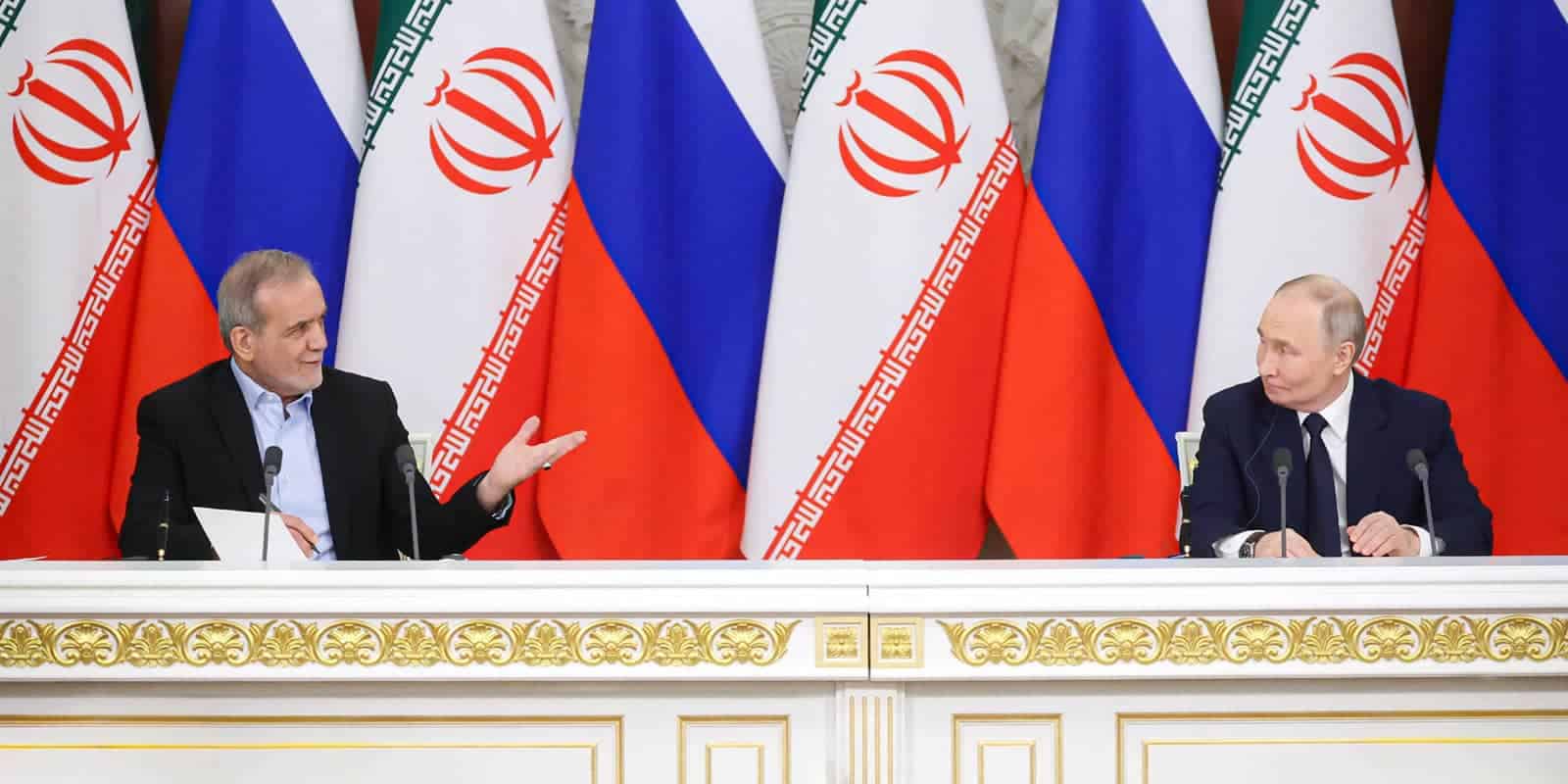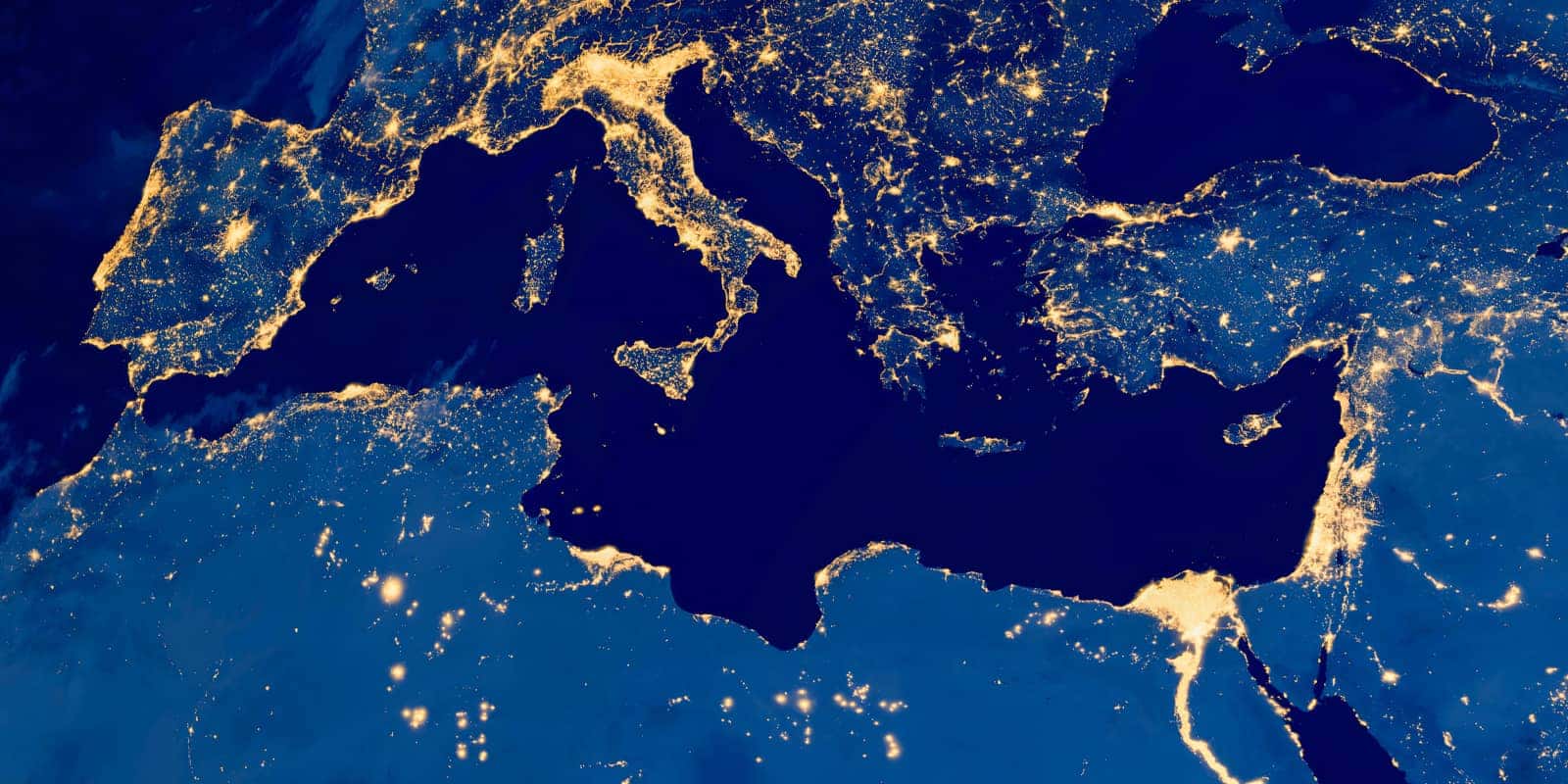Israel’s operation “Rising Lion” caught the Iranian regime by surprise, severely limiting its capacity to thwart the Israeli blitz and retaliate effectively. This surprise facilitated the smooth continuation of the Israeli attack and significantly diminished Iran’s strategic assets, including missiles and drones. Although Iran persisted in launching missiles at Israel, much of its strategic arsenal was successfully destroyed, including significant damage to key Iranian nuclear installations during the U.S. assault.
The mere fact that the Iranian propaganda machine had to resort to concocting fake news, such as claims that it had taken Israeli pilots prisoner or that it had targeted F-35 hangars in Tel Aviv, underscore the dire straits the regime found itself in amid a lack of any better option.
According to Prime Minister Binyamin Netanyahu, Israel set two strategic objectives for this attack: to eliminate Iran’s nuclear capacity to the point where it could not resume a military nuclear program and to neutralize Iran’s ballistic missile arsenal. Notably, regime change in Iran was never on Israel’s stated list of goals. Statements from Netanyahu and other high-ranking Israeli officials clarified that while the toppling of the Shi’ite theocracy could be seen as a possible or beneficial side effect of the strike, it was not Israel’s premeditated aim.
Yet, the Iranian regime excels in hybrid war, meaning the capacity to fight the enemy on all fronts with all means possible. Propaganda, disruption, and information war are part and parcel of hybrid war, as outlined in Russian and Iranian intelligence playbooks. It is reasonable to assume that Iran will intensify its efforts in this direction as its position weakens. One should never underestimate the damage potential of Iranian disruptive activities in the South Caucasus. The recent Iranian recruitment of Israeli citizens to spy on its behalf demonstrate its capabilities.
Since the onset of Israel’s military operations against Iran in June 2025, Iranian media outlets have crafted specific narratives regarding Azerbaijan’s role in the conflict. These narratives form part of a broader campaign aimed at explaining Iran’s losses in a war it had prepared for decades. The campaign’s central message is that Iran is surrounded by enemies and is not merely fighting against a tiny state located nearly 2,000 kilometers away. Azerbaijan, a long-standing thorn in Iran’s side—a secular state with a Muslim majority and an independent multi-vector policy—serves as an ideal scapegoat for Tehran, which for 30 years has sought to destabilize it.
The narratives mentioned primarily focus on Azerbaijan’s media response, diplomatic stance, and strategic relationship with Israel, blaming the Azerbaijani Republic for allegedly “assisting” the Israeli military effort.
Key Narratives in Iranian Media
- Azerbaijan’s Media Alignment with Israel
Iranian news agencies have published detailed analyses of Azerbaijani media coverage of Israeli operations. These reports claim that Azerbaijani media outlets have deliberately avoided condemning Israel’s actions against Iran, instead using neutral language to describe the attacks.
Iranian officials accuse major Azerbaijani media outlets, such as APA and Trend, of employing a “coordinated strategy” of “linguistic neutralization,” “enemy propaganda republishing,” and “diplomatic smoke screens.” Another complaint points at Azerbaijani media’s avoidance of negative terminology regarding Israeli actions, with Iran accusing it of deliberately employing neutral terms such as “conflict,” “war,” and “strikes” rather than terms with negative connotations like “aggression” or “criminal act” when describing Israeli operations.
- The “Two Nations, One State” Narrative
A particularly prominent narrative in Iranian media portrays Azerbaijan and Israel as having an exceptionally close relationship that transcends ordinary diplomatic ties. The IRGC-affiliated Fars News Agency has characterized the relationship between Azerbaijan and Israel as “two nations, one state.” This characterization is significant because Turkey uses the phrase “two countries, one nation” to describe its relationship with Azerbaijan, while neither Israeli nor Azerbaijani media adopt this terminology. This narrative gained traction after Azerbaijan awarded Israel the highest possible number of points in the Eurovision Song Contest, where Azerbaijan was represented by a Jewish singer and Israel by a contestant of Azerbaijani descent. Iranian media presents this cultural event as “evidence of deeper strategic alignment” between the two countries that threatens Tehran’s security interests.
- Azerbaijan as a Strategic Platform for Israel
Iranian media frequently disseminates misinformation claiming that Azerbaijan is providing Israel with a strategic foothold near Iran’s northern border. Outlets like Diplomacy Irani have published analyses suggesting that Azerbaijan serves as “Israel’s communication bridge in the Caucasus” and a potential launching pad for operations against Iran. Iranian sources allege that Azerbaijan allows Israeli intelligence to operate along the Iran-Azerbaijan border through electronic eavesdropping and intelligence collection stations. Iranian media reports suggest that Azerbaijani territory may have been used for Israeli military operations against Iran, despite numerous Azerbaijani official denials.
- Criticism of Azerbaijan’s Diplomatic Stance
Iranian propaganda denounces Azerbaijan’s reluctance to take a firm stance against Israel’s actions, interpreting diplomatic calls for dialogue as inadequate. In other words, Tehran demands that Baku explicitly condemn Jerusalem. Iran also exploits every occasion to add fuel to the fire, invoking Armenia’s condemnation of Israel.
- Azerbaijan Actively Helps Israel to Fight Iran
Iranian media has circulated numerous claims that Israeli drones launch from Azerbaijani territory. This insinuation is baseless since the cooperation agreements between Israel and Azerbaijan prohibit the use of Azerbaijani territory for carrying out any kinetic actions against other states. Nevertheless, the effectiveness of Iranian propaganda in lending some credibility to these accusations warrants explanation. Reports of Israeli strikes in East Azerbaijan province, including its capital, Tabriz, provide a rationale for Iranian media labeling Azerbaijan as “the culprit” for these strikes.
Recently, Azerbaijan reopened the Astara border crossing located in southern Azerbaijan along the Iranian border. The IRGC-affiliated Farsnews attempts to portray this as evidence of covert coordination between Baku and Israel. According to Farsnews, the decision to open the border crossing is aimed at facilitating Mossad operations in Iran.
The reformist-affiliated Shargh daily also blames Azerbaijan for contributing to “the aggression.” Moreover, it argues that if Israel finds itself in a difficult situation, it will urge Turkey and Azerbaijan to attack Armenia to seize the province of Syunik, which borders Iran. Tehran’s ambassador to Armenia, Mehdi Sobhani, reiterated insinuations that Israel could facilitate a renewed Azerbaijani war against Armenia. Notably, Mehdi Sobhani is not a career diplomat, but a high-ranking IRGC officer who served in Syria. This implies that he was involved in Hezbollah’s terrorist activities. Strangely, this ostensibly non-diplomatic record raised no suspicions in Yerevan.
Yerevan as a Tool for Iranian Propaganda
Armenia has consistently supported Iran. For several years, some Armenian media outlets and politicians have disseminated overtly anti-Semitic and racist propaganda against Israel and Azerbaijan. Interestingly, Armenian statements strictly follow the tropes of the Iranian information war.
A Telegram channel, “Strong Armenia,” justifies Iranian missile strikes on Israeli civilian infrastructure and expresses satisfaction over reported attacks on gas installations, solely because an Azerbaijani company is one of the stakeholders. Another channel wholeheartedly stands behind Iran and claims that Azerbaijan is preparing for another war against Armenia.
Other Armenian social media explicitly reference claims made by Iranian media regarding Azerbaijani President Ilham Aliyev’s supposed role in facilitating Israeli operations in Tabriz. Likewise, Armenian sources consistently recirculate Iran-concocted fake news about Israel. Interestingly, many Armenian media outlets are hostile to Armenia’s president, Nikol Pashinyan, for his efforts to put an end to the enmity with Azerbaijan and distance the nation from Moscow. Consequently, it is no wonder that their stance is not only pro-Iranian but also pro-Russian.
One of Armenia’s liberal writers, Arab Abrahamiyan, stated that “Israel is not a friendly country” and that his sympathies in the current conflict “lie with Iran.”
Armenian insinuations, along with anti-Semitic and racist rhetoric, align perfectly with Iranian propaganda. Thus, these media outlets in Yerevan not only actively support Tehran but also willingly follow its directives while presenting themselves to the West as proponents of a pro-Western agenda. They have become indispensable tools of Iranian diplomacy.
One should never underestimate the Iranian information war as mere wordplay. In the future, these narratives may aid the regime in justifying aggressive actions against its neighbors and executing terrorist attacks targeting Jews and Israelis.
For instance, some Iranian media affiliated with the IRGC suggest “punitive” measures against Azerbaijan, such as deploying additional troops to the border and conducting military drills along it.
Implications for Israel and the U.S.
Israel and the U.S. should closely monitor Iranian activities in the South Caucasus, even though this region comes under the radar of the Israeli and American research institutions and media. Iran views this region as strategically important for countering Israel and the U.S. The Iranian regime perceives its diplomacy and cultural efforts as integral components of its hybrid warfare strategy to achieve its objectives. Therefore, the fight against the Iranian regime cannot be confined solely to its kinetic phase. Moreover, it appears that the weaker the regime becomes militarily, the more efforts it will likely invest in disrupting and destabilizing adjacent regions.
JISS Policy Papers are published through the generosity of the Greg Rosshandler Family.















Israel’s Veteran Peace Partners: The Role of Egypt and Jordan in the Context of Trump’s Gaza Plan